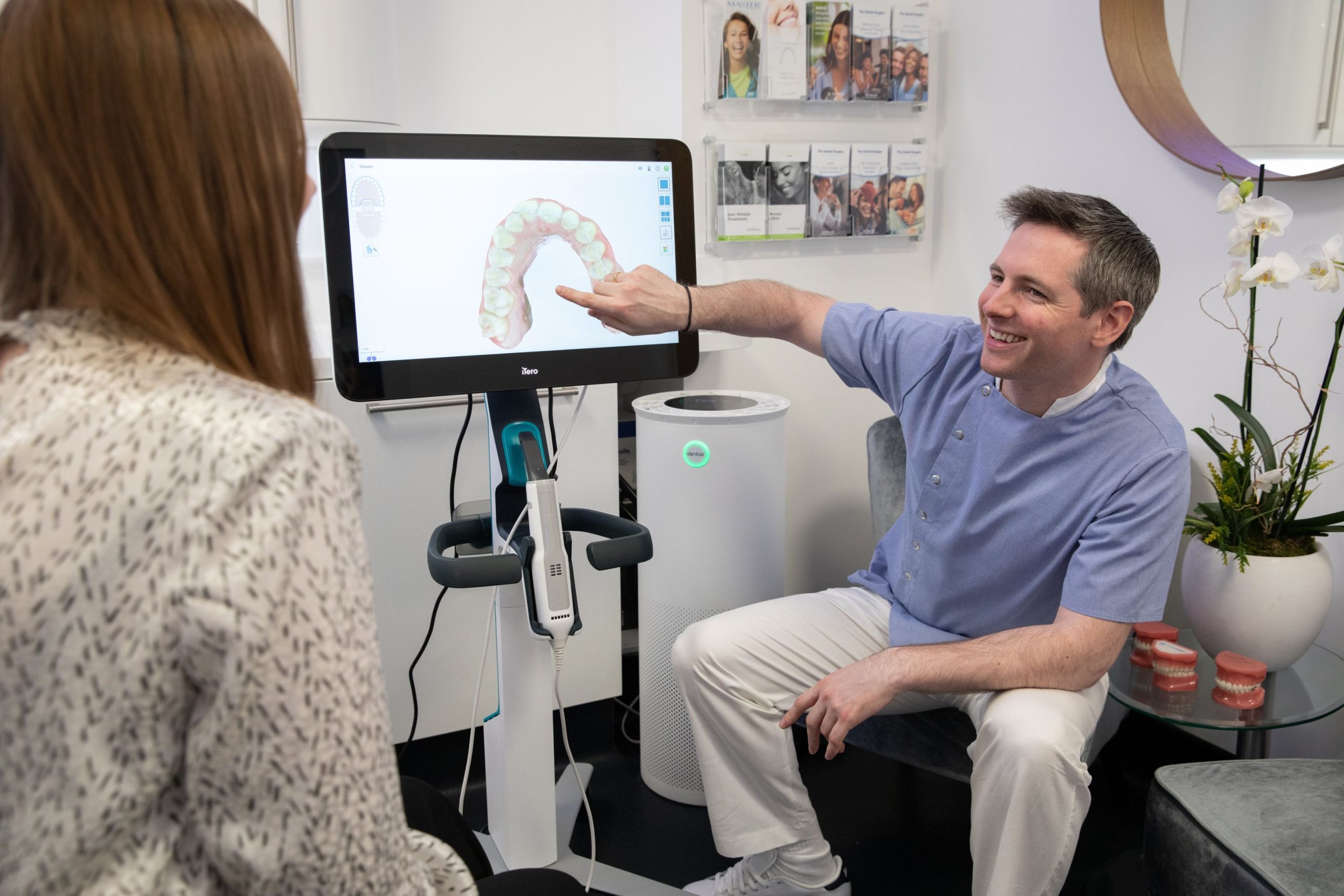-
Categorised as:
- Dental Hygiene
- General Dentistry
- Periodontics
What is Bad Breath?
Bad breath is a common complaint but the fact many suffer from this condition does not limit its impact on the individual.
Also known as halitosis, bad breath was named the third worst smell in Britain in a 2013 survey, preceded only by baby poo and the smell of sewers on a hot day! Having bad breath is not something you need to learn to live with, or something that you should ignore as it can also be an indication of underlying health issues.
What causes bad breath and how can it be improved? Let’s take a look…
Bad Breath: Diet
What you eat and drink has an impact on the quality of your breath.
Dehydrating food
Some food and drink dehydrate the mouth. Tea, coffee and alcohol would all fall into this category. Saliva is key in washing away the “bad” bacteria in the mouth, when the mouth dries out and saliva production slows, the bacteria that causes bad breath thrives and multiplies.
Smelly foods
Foods that have a pungent odour are obvious culprits; adding garlic to every meal a common cause of bad breath. Other potential problems include diets high in protein, acidic foods and a diet high in sugar. The bacteria that naturally exist in your mouth feed on these foods, turning good food to bad smells.
Poor Oral Hygiene
Bad breath is usually due to a build-up of bacteria in the mouth and this often the result of ineffective oral hygiene.
That does not necessarily mean outright neglect of oral health, simply skipping one day of brushing, not using the proper techniques or neglecting certain areas of the mouth can be enough for bacteria to accumulate over time. Oral bacteria multiply every five hours and so there is a constant battle to be fought!
To maintain good oral health it is essential to brush twice a day, this for at least two minutes a time and with a good quality toothbrush (preferably electric) and toothpaste – one high in fluoride.
The oral routine should also include daily flossing and use of interdental brushes. (See our video guidance here)
If you’re already doing all of the above and still experiencing bad breath, it may be time to turn to the tongue – bacteria can accumulate on the tongue and cause a bad smell. Invest in a tongue scraper or be sure to brush your tongue too.
A good oral hygiene routine also includes what you shouldn’t do – don’t rinse immediately after brushing as this can serve to simply negate the benefit of having a fluoride toothpaste and don’t brush your teeth too hard. Here are 10 mistakes you may be making while brushing your teeth.
A common misconception is that mouthwash will give you a better breath, however most mouthwashes simply mask the smell. Instead, look for those that actively work to neutralize bad breath, such as CB 12.
Not Keeping Your Mouth Hydrated
The best thing you can do for your oral health during the day is to keep your mouth hydrated.
Always have water on the go, a bottle to sip, and chew sugar free gum to stimulate saliva production. These two simple tips will help to maintain saliva levels – the best natural defence to bad breath.
Note: Make sure that the gum is sugar free – sugar is a substance that the “bad” bacteria thrive upon and so chewing gum high in sugar is self-defeating.
Also be wary of putting lemon or orange slices in your water as these citric acids may wear away at your enamel.
Smoking
Smoking makes bad breath far more likely.
Not only does smoking dry out the mouth, causing bad breath due to similar reasons listed above, but the chemicals in the nicotine can also contribute to a bad smell. Smoking can also stain the tongue, causing what is often described as a “furry” tongue, which also leads to bad breath.
Even worse, a lot of people who smoke are unaware of their bad breath as excessive smoking can lead to the individual losing the sense of smell.
Underlying Health Issues
In the UK, most adults will have gum disease at some stage in their life – this likely to be the treatable gingivitis rather than periodontitis, which leads to erosion of bone.
Unresolved issues such as gum disease, significant tooth decay or wobbly adult teeth might cause bad breath, but bad breath in itself could also be a symptom of these problems.
Ultimately, it doesn’t matter which way you look at this – whether you focus on the cause or the impact, there is an issue here that needs treatment.
If bad breath is the result of a more serious problem then no amount of brushing and flossing is going to solve it, even if you can perhaps mask the bad breath for a while.
Crash Dieting
If you have recently gone on a diet and noticed your breath worsen the two could be related.
Dieting, and especially crash dieting can force the body to produce energy in different ways – one example would be using up protein, this generating ketones that have a pungent smell.
Crash dieting is not healthy and should be avoided for many reasons, the impact on oral health just one of these.
Certain Medications
Some medications, such as antihistamines, antidepressants, diuretics, decongestants, the contraceptive pill and even certain vitamin supplements could change the way your body deals with certain bacteria, and in your mouth, that means increased risk of gum disease and accompanying bad breath.
Existing Medical Conditions
Some medical conditions, especially those related to the mouth and throat can impact breath.
Someone suffering from tonsillitis would, for instance, have a higher likelihood of suffering bad breath because of the build-up of bacteria.
If bad breath appears to be linked to a medical condition such as this it is advisable to see if it persist after the condition has been treated.
In some instances it may be easy to identify what the cause of your bad breath is, however there are many situations in which you will need the help of a dental professional to diagnose the cause and provide the proper advice and treatment.
The Role Of A Dental Professional
While there are many ways to try and prevent, avoid or minimize bad breath, there are many possible causes and often diagnosing the exact reason for this cannot correctly be done at home. When effective oral hygiene and a good diet still don’t help to improve your breath it may be time to see a dentist and hygienist who will be able to assess your overall oral health in combination with your lifestyle, and provide tailored treatment to get you on your way to a better smelling breath.
Do you have a specific question?
Get in touch with us today.



